How Much do You Know About Mass Merchants?
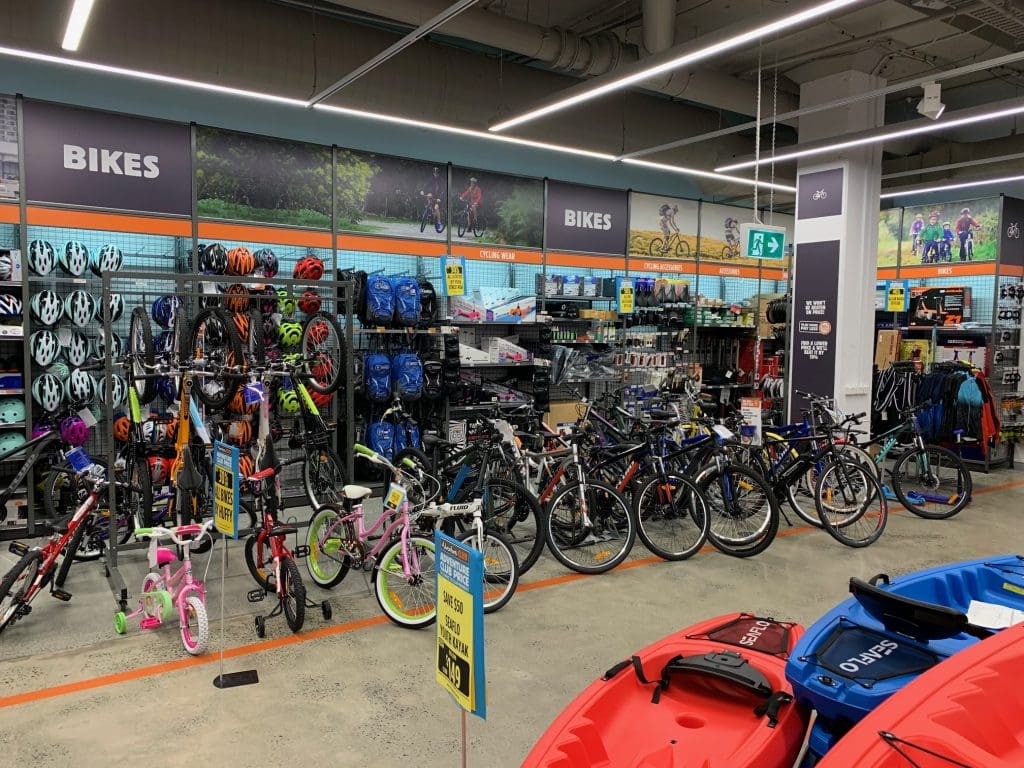
Depending upon who you talk to, Mass merchants account for anywhere between about 60% and 75% of Australia’s bicycle sales, as measured by volume. Due to their much lower average price than independent bicycle dealers (IBD’s), their share of sales as measured by dollars would be significantly smaller.
But in a market where a competitor is taking a large slice of market share, you hear very little spoken about mass merchants by IBD’s.
What is happening in the mass merchant sector? Should IBD’s be trying to compete or just focusing on higher end bike sales?
What about the more recently expanding ‘big box’ retailers? Do they pose a larger threat to IBD’s?
This article will explore at least some of the answers to these questions.
To find out more, The Latz Report called two highly experienced bicycle industry members with a combined 40 plus years’ experience in supplying bicycles and P&A to mass merchants.
Quite a few major wholesalers supply both the IBD and mass channels, but they’re sensitive to backlash about this from IBD’s, so the contacts preferred to remain anonymous.
Q. What are some of the biggest changes you’ve seen in the mass market your years of involvement?
A1: There’s a big push to private label products rather than brands, to improve their margins.
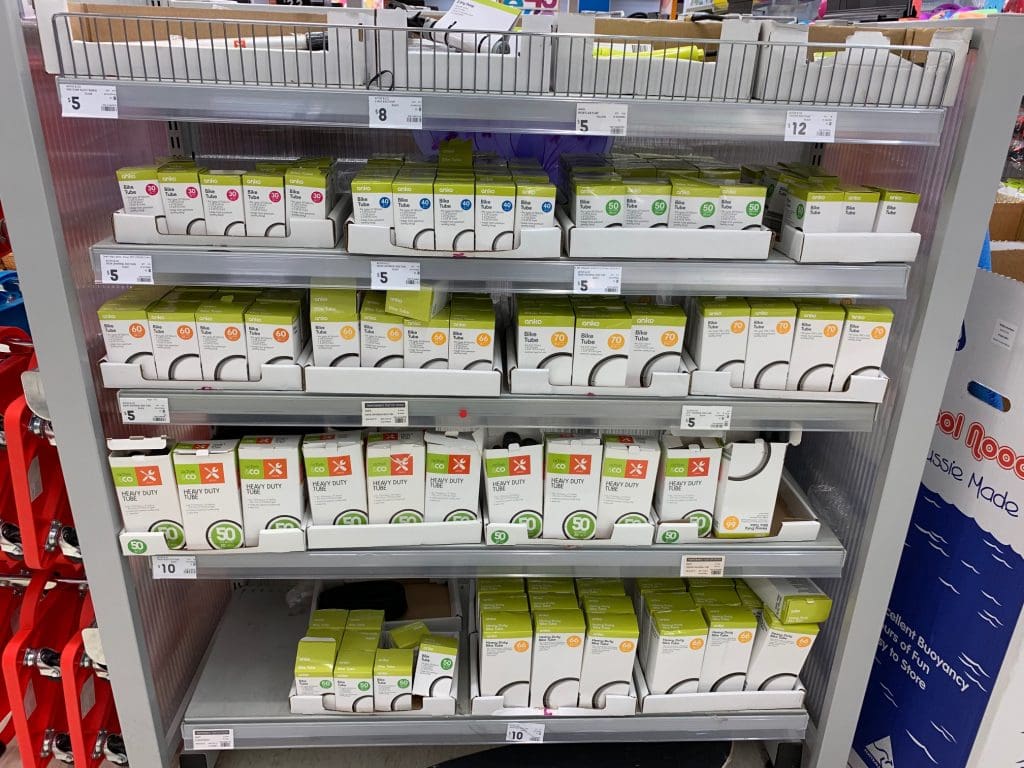
A2: The quality of the product has increased to what we’re buying from a normal retail store.
Kmart bikes are coming from the same factories with the same materials now as IBD bikes come from. In China there has been tightening government regulations regarding non-lead paint, frame materials, pollution measures and so on. The factories can no longer cut corners the way they used to. Back in the day the tube sets and paint would be different because they were getting away with things that they can’t now.
Particularly with 12, 16, 20 inch kids bikes, you’ll find they’re the same product with different colours and decals. That’s the downside for the IBD. The bike selling through the mass merchant is better quality than it was five to seven years ago.
Kmart are going to be getting electric bikes this season. I’m not sure of the exact price point but probably around $899.
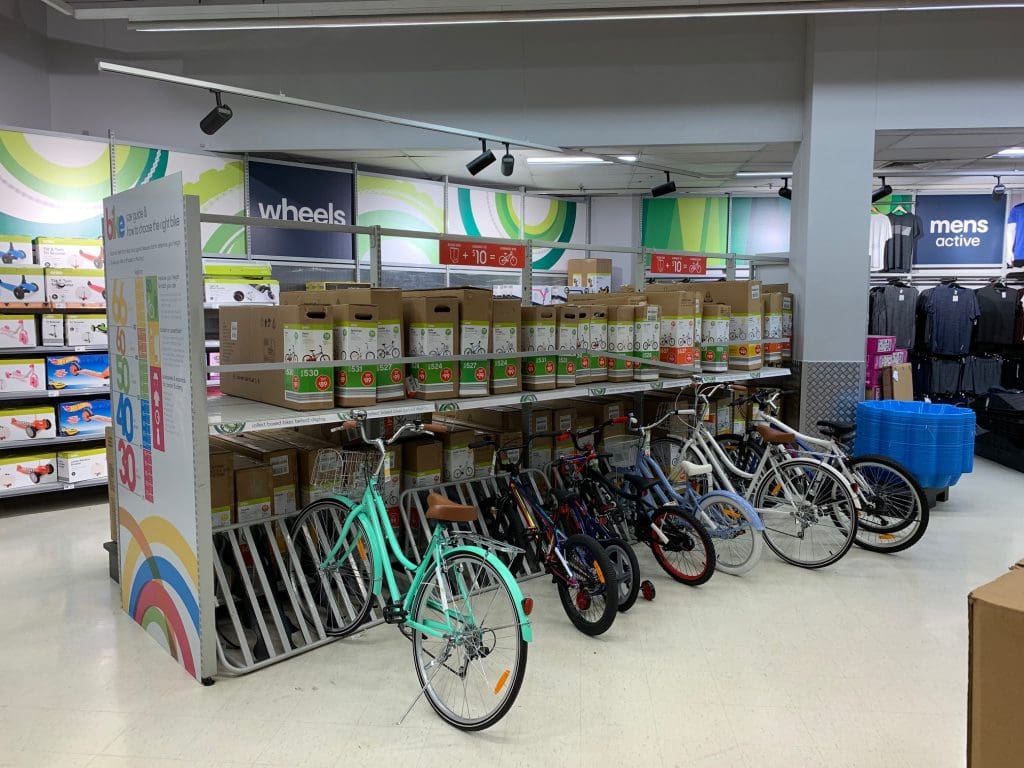
Q. Who are the biggest players and how would their market share compare?
A1: Kmart is definitely the biggest out there, certainly in units, although they’re predominantly at the entry price points.
We see Big W as second with Target third, but diminishing.
With the demise of Toys R Us (closed in 2018) there’s a gap in that market segment that hasn’t really been filled, although there’s a company called Toymate taking over a number of their sites.
Rebel, Anaconda and Decathlon we’d see as being the ‘big box sporting channel’ as opposed to discount department store.
A-Mart have largely disappeared although some stores have rebranded as Rebel. But the large bike footprint that they did have in terms of service desks and bike assembly has gone.
Q. How much expertise in the bicycle market to mass market buyers have?
A1: The buyers in bikes tend to be around longer than a typical toy or softgoods buyer, because of the wealth of knowledge that’s required. But they’re also reliant on wholesalers, and Kmart has its own sourcing office in China.
Q. Kmart has generic unbranded helmets as low as $7 retail. How can this price point be profitable?
A1: They a bit of a loss leader to get people in there and shopping. You’ll see that across all the categories in a department store. They’re all competing with each other at that entry level. Then the offer goes to higher priced products above that.
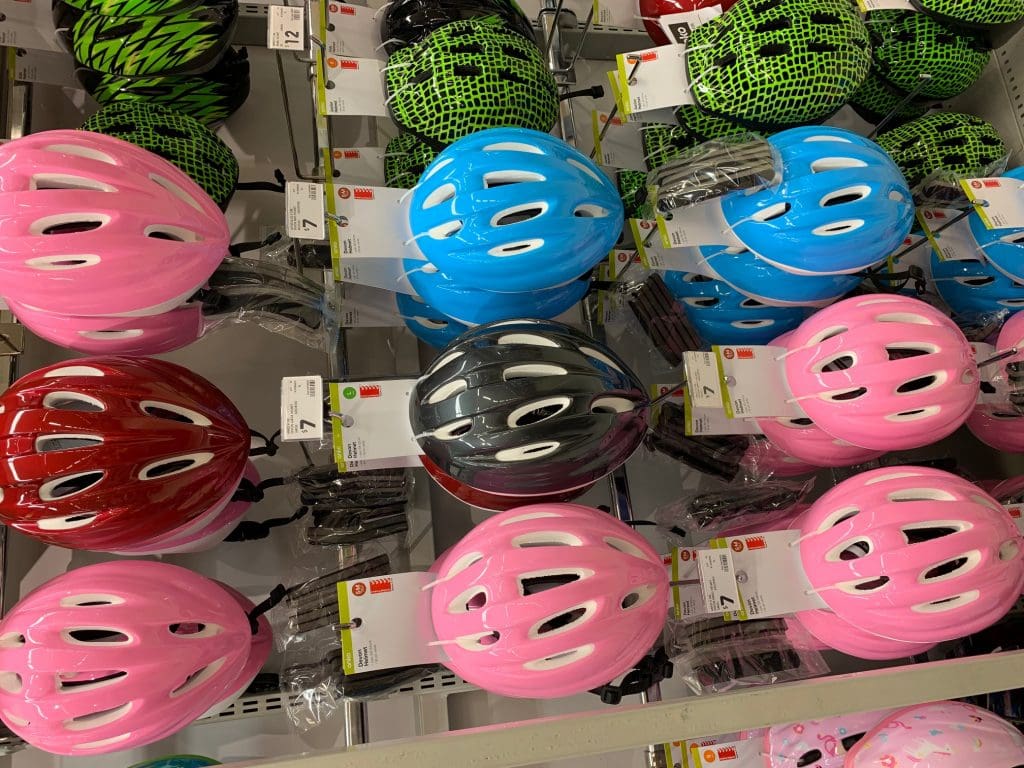
Do you think that IDB’s can or even should try to compete with mass merchants? If so, what do you think they should be doing?
A1: They’re going to struggle. Purely around the efficiencies against the scale of Kmart with their own supply chain and buying power.
And they’re operating off much narrower margins.
But as the price point rises, they can compete and that’s where branding comes into it.
I think Decalthlon is going to struggle in Australia where we like our brands and they’re trying to do it all with their own house brands out of France.
We’re probably not going to see much growth in the department store channel because they’re actually starting to close some of their less profitable store locations.
The prime part of the mass market is kids. Scooters are massive at the moment. It’s getting the kids onto their first set of wheels. From ride-ones to trikes to bikes and onwards and upwards after that.
Licencing plays a big part in it as well. You’ve got Disney, Marvel licences that translate across to all the categories and is a big part of department store sales.
A2: As a market IBD’s have let it go. It’s gone. If you go back 20 years ago kids bike sales were massive through the IBD’s. Now they hardly sell any.
What they need to do now is protect what they have now. Otherwise the mass will take it. That $499, $599 IBD price point, which would be the biggest by volume – they’ve got to protect that.
You look at that Aldi mountain bike for $399. It’s better than the $599 or even $699 bike that’s in a bike shop. It’s a difficult thing, but that’s what they have to do.
They higher prices are brand driven rather than price drive. Sub $500 it’s all about price.

I think there are problems with the mass selling bikes in a box that have hydraulic disc brakes because consumers don’t know to put the wheel in before they squeeze the brake lever. Sure it might be on the instructions but how many people read the instructions?
Aldi did a one off special ebike on 13th March 2019 for $799. Aldi’s mountain bike this year, for $399 was an unbelievable spec. They’re not making a lot of money out of it.
(The Aldi Premium 29er Mountain Bike, which was sold during September 2019 was spec’d with an alloy gusseted frame, Tektro dual piston hydraulic disc brakes, Shimano 1×10 speed Deore drive train with clutch derailleur and SR Suntour XCM suspension fork with lockout)
If people want a cheap bike they’ll go mass. If they want a better bike they’ll go big box. Anyone who’s an enthusiast will go to a bike shop.
But families or someone who’s lost their driver’s licence and needs a bike for transportation will go to a big box or mass merchant.
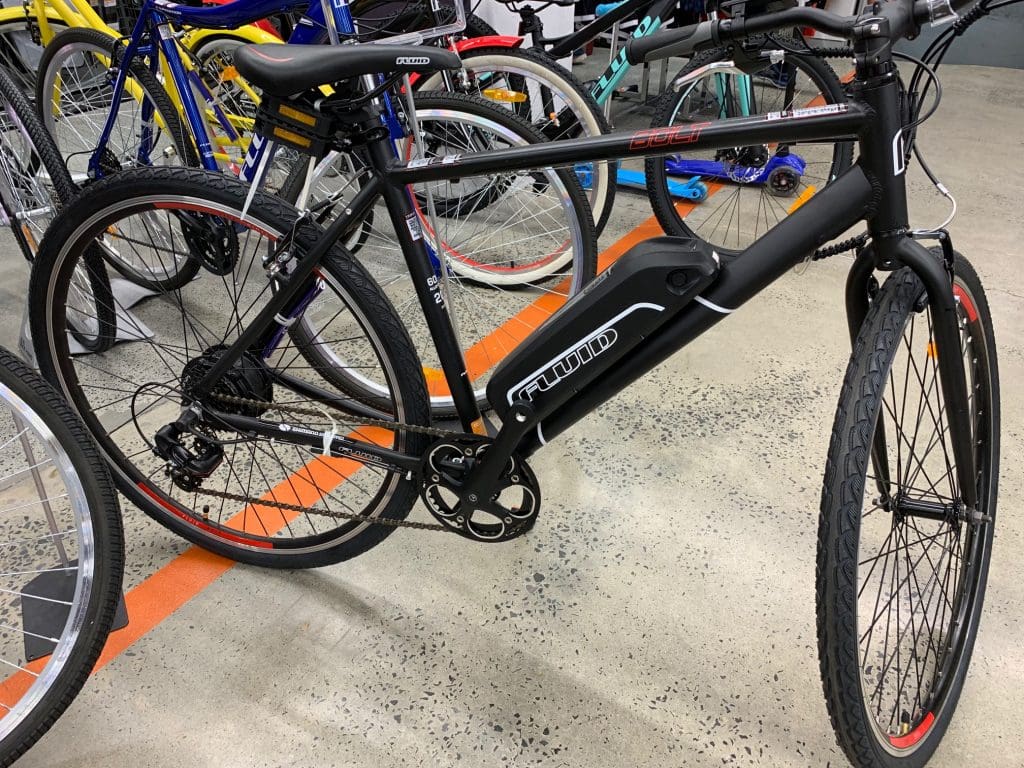
Summary of Mass Merchants in the Australian Bicycle Market.
Kmart
Kmart has grown from 214 stores in August 2015 to 228 in 2018. This includes 20 stores in New Zealand. Total annual sales $6 billion in 2018, 31,000 staff.
Big W
Big W has182 stores, total annual sales $4.11 billion, 22,000 staff. They announced on 29th August 2019 that 30 stores are to close over next three years across both city and country stores.
Target
Target has 293 stores of which 148 are smaller Target Country branded stores that usually don’t sell bikes in Australia. Total annual sales $2.8 billion in 2018. 16,000 staff. They peaked 305 stores before announcing the closure of 15 stores.
Toyworld
Toyworld has 120 stores, all of which are individually owner operated, so there is no further data on record.
Anaconda
Anaconda has 50 stores. It is part of the privately held Spotlight Group, so there is no further data on record.
Rebel
Rebel has 90 stores, 4,500 employees. It is part of the Super Retail Group that also owns Supercheap Auto and BCF. Super Retail Group had previously bought the Goldcross Cycles chain, with big plans for expansion which failed before they eventually rolled it into A-Mart which in turn has now been rolled into Rebel.
Decathlon
Decathlon is the newest big box retailer in Australia. So far there are only five stores, two in Sydney, three in Melbourne. They plan to open five stores a year until they reach 35 stores. French based Decathlon has 1,200 stores in 30 countries worldwide.
Aldi
German based Aldi supermarkets have 11,234 stores in 20 countries and approx. $75 billion in annual sales. In Australia they have 536 stores.
